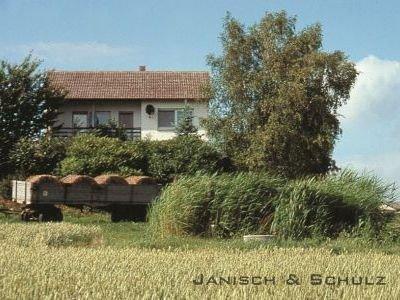Unbeatable cost efficiency
The first CW, which was commissioned in the summer of 1993, continues to perform exceptionally well, consistently meeting the prescribed limit values throughout the year and functioning without any repairs or replacement parts, completely without electricity. The costs of investment and operation have proven to be unbeatable compared to similar systems over the years of operation. While cost planning 30 years ago was uncertain due to the lack of long-term experience, the positive outcome today is undeniable.
Continuous innovation in natural techniques
Since then, the technology has evolved. The initial systems were horizontally flow-through, whereas today, vertical, intermittently fed systems are predominantly used. In addition, hybrid, two-stage designs offer new possibilities for complex wastewater and increased purification requirements. Today, Janisch & Schulz builds constructed wetlands worldwide for small, medium, and large-scale applications. The largest plant, serving a population equivalent of 20.000, was inaugurated in Cihuatlan, Mexico in 2021. In addition to Germany and Mexico, engineers from Janisch & Schulz are currently working in Paraguay and Argentina to tap into new markets and actively contribute to environmental protection with their natural water treatment systems.
The future? Innovation and diversification
Currently, we are testing a pilot plant of an "electroactive CW" on the Bender family’s farm. This innovative setup not only achieves increased purification efficiency per unit area but also generates electricity! This technology is internationally known as "Constructed Wetland Integrated Microbial Fuel Cells (CW-MFCs)."
The concept behind this technology combines constructed wetlands and microbial fuel cells. In this approach, the non-conductive substrate (sand and gravel) typically found in planted soil filters is replaced with conductive materials such as graphite, coal, or coke. These conductive materials accelerate the biochemical degradation processes while generating bioelectricity. Thus, this new approach not only reduces the land area required by CWs by at least 50% but also has the ability to produce energy. This new approach has been well-documented on a laboratory scale, and now these results need to be verified under real conditions.
We are also taking new approaches on the international stage. In Mexico, since 2019, we have been building some of the largest CWs in the world. In warm regions such as Paraguay and Argentina, we are experimenting with irrigating green roofs with pre-treated wastewater, which allows for water treatment while simultaneously cooling the buildings. The future remains exciting, even for the next 30 years.
Stay updated on our work through our website www.janisch-schulz.com/en and our LinkedIn page https://www.linkedin.com/company/janisch-schulz/.
Since 1993, Janisch & Schulz has been planning, constructing, and maintaining constructed wetlands, natural swimming pools, and rainwater treatment systems. With our multidisciplinary team, we provide customer-oriented creative water and wastewater solutions. These solutions are characterized by their reliably high cleaning performance and also enhance the surrounding environment. In doing so, we make water tangible again in its entirety and create ecologically and didactically valuable blue-green infrastructure.
Today, Janisch & Schulz is represented not only in Germany but also in Latin America (Paraguay, Mexico, and Argentina) with specialized experts.
Janisch & Schulz Ingenieure
Bahnhofstr. 15
35516 Gambach
Telefon: +49 (6033) 74529-0
Telefax: +49 (6033) 74529-11
http://www.janisch-schulz.com
Geschäftsführer
Telefon: 06033 / 74529-0
E-Mail: schaeller@janisch-schulz.com
Projektentwicklung, Marketing
E-Mail: schmelzle@janisch-schulz.com
![]()

